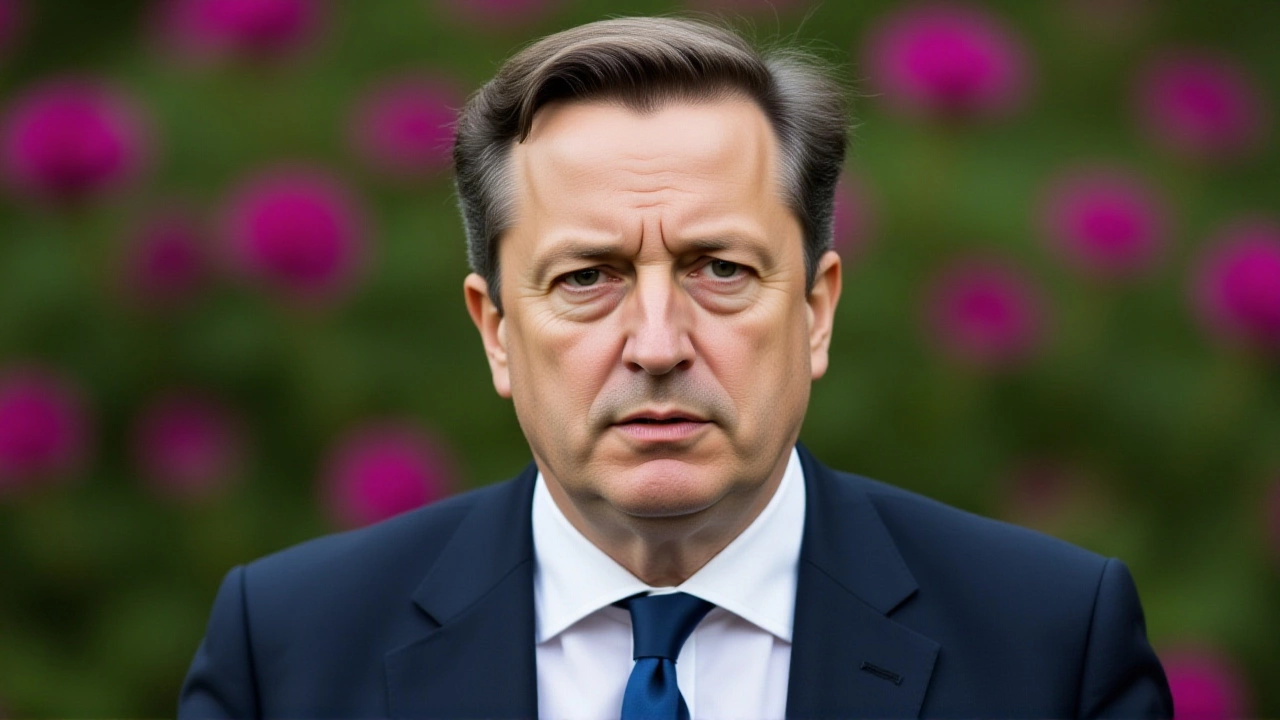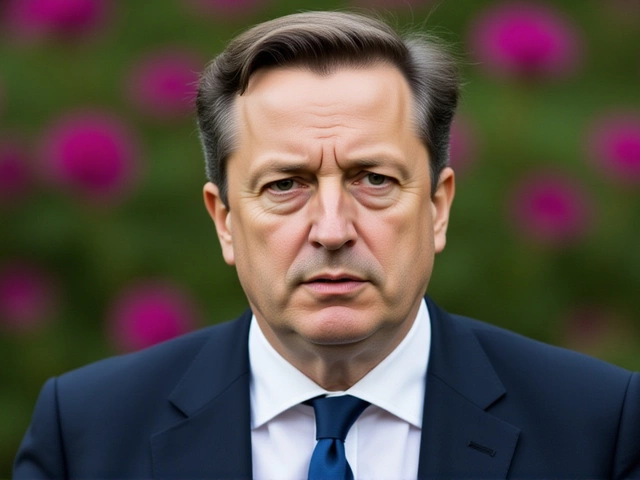When Julian Smith stood before the Northern Ireland Affairs Select Committee in October 2019, he didn’t mince words: a no-deal Brexit, he told lawmakers, would be "a very, very bad idea for Northern Ireland." Now, over three years later, he’s turned his fire on the man who started it all — David Cameron. In a July 7, 2023 interview with The London Economic, Smith, once a loyal lieutenant in Cameron’s government, described the 2016 referendum campaign as if it were "some sort of Eton game." The remark isn’t just biting — it’s a damning indictment from someone who lived inside the machinery of power as it unraveled.
Inside the Room When the Game Began
Smith wasn’t a bystander. He was in the room when the decision to hold the referendum was made. As Assistant Government Whip in Cameron’s second ministry — a role he earned after winning his seat in Skipton and Ripon with 55.4% of the vote and a 20,761 majority in May 2015 — Smith helped manage parliamentary discipline during a time when the Conservative Party was teetering on the edge of civil war. He saw firsthand how casually the referendum was framed: as a political tool to quiet the Eurosceptic wing, not as a constitutional earthquake. "It wasn’t about the future of the country," Smith reportedly told The London Economic. "It was about keeping the party together long enough to win the next election. And when it blew up? Well, that wasn’t part of the plan."The Fallout: A Leader Who Left
Cameron resigned the day after the referendum results were announced on June 24, 2016. He didn’t wait for Parliament to debate the outcome. He didn’t try to steer the ship through the storm. He just walked away. Smith, who had campaigned for Remain, was left to pick up the pieces. He helped launch Theresa May’s leadership bid, becoming one of six MPs who rallied support for her. He was rewarded with the role of Vice-Chamberlain of the Household — a position that kept him close to the center of power as May struggled to deliver on a promise she never fully defined. But even then, Smith pushed back. He publicly warned May’s cabinet that refusing to accept a softer Brexit was politically suicidal. He saw the divisions — between hardliners and moderates — and knew they were tearing the party apart. "They weren’t negotiating," he said later. "They were playing musical chairs with the country’s future."The Sacking and the Silence
When Boris Johnson took over in July 2019, Smith was appointed Secretary of State for Northern Ireland — a role that demanded nuance, patience, and deep understanding of the region’s fragile peace. He worked tirelessly on the Northern Ireland Protocol, the complex post-Brexit arrangement designed to prevent a hard border on the island of Ireland. His efforts were praised by the Institute for Government, which wrote in January 2020: "Julian Smith needs to stay in post to oversee the implementation of his deal." Yet Johnson removed him in February 2020. Political editor Stephen Bush of the New Statesman believed it was Smith’s opposition to a no-deal Brexit that cost him his job. "He was too honest," Bush wrote. "And in Johnson’s government, honesty was a liability."Why This Matters Now
Smith’s latest comments aren’t just about regret. They’re about accountability. Cameron’s decision to gamble on a referendum wasn’t just a tactical error — it was a failure of statesmanship. He treated a question that would reshape Britain’s identity, economy, and global standing like a university debating society. And when the vote went against him, he left others to clean up the mess. The economic cost? Over £100 billion in lost GDP growth, according to the Office for Budget Responsibility. The political cost? A fractured Conservative Party, a weakened Parliament, and a public that no longer trusts politicians to tell the truth. Smith, who stayed through it all, is now speaking out because he believes silence is complicity.What’s Next for British Politics?
With the next general election looming, Smith’s revelations could reignite debate over who’s truly responsible for Brexit’s chaos. Will the public demand answers from those who initiated the crisis — or will they continue to punish the ones left holding the bag? The irony? Cameron’s resignation speech in 2016 was full of regret. But he never accepted blame. Smith, by contrast, has spent years trying to fix the damage — and now he’s willing to say what others won’t: that the referendum wasn’t a democratic triumph. It was a reckless gamble disguised as leadership.Frequently Asked Questions
Why is Julian Smith’s criticism of David Cameron significant?
Smith wasn’t an outsider — he was a senior minister in Cameron’s government, helped install Theresa May, and later served under Boris Johnson. His insider perspective gives weight to his claim that the referendum was handled with dangerous casualness. Unlike critics who weren’t in power, Smith helped execute the very policies he now condemns.
What was the impact of the Brexit referendum on Northern Ireland?
Northern Ireland became the most complex part of Brexit due to its land border with the Republic of Ireland. The Northern Ireland Protocol was created to avoid a hard border, but it created new trade barriers between Northern Ireland and Great Britain. Smith warned this would destabilize the Good Friday Agreement — a warning that proved prescient as tensions rose over customs checks and political representation.
How did David Cameron’s resignation affect the UK’s Brexit process?
Cameron’s immediate departure left a leadership vacuum at the worst possible time. With no clear strategy, Theresa May inherited a divided Cabinet and a public demanding answers. The lack of transition meant the government spent two years negotiating a deal that Parliament repeatedly rejected — delaying Brexit by over two years and deepening public distrust.
What role did parliamentary pairing agreements play in the Brexit crisis?
Pairing — an informal agreement where MPs from opposing parties agree not to vote if the other is absent — is a centuries-old tradition meant to ensure fair voting. In July 2018, Smith was accused of pressuring five Conservative MPs to break pairing during a key Brexit vote. Only one complied. The breach, exposed by the Financial Times, undermined trust in parliamentary norms and highlighted how far the party was willing to go to force through its agenda.
Why did Boris Johnson sack Julian Smith?
Smith’s public opposition to a no-deal Brexit and his insistence on protecting the Northern Ireland Protocol clashed with Johnson’s hardline stance. Political analysts, including Stephen Bush of the New Statesman, believe Johnson removed Smith because he was too principled — and too visible — to be useful in a government focused on speed over substance.
Could a similar referendum happen again in the UK?
It’s unlikely without a major political shift. The damage from 2016 — economic uncertainty, regional divisions, and eroded trust — has made politicians wary. Even hardline Brexiteers now admit the process was mishandled. Any future vote would require far more preparation, cross-party consensus, and public education — none of which existed in 2016.




Write a comment